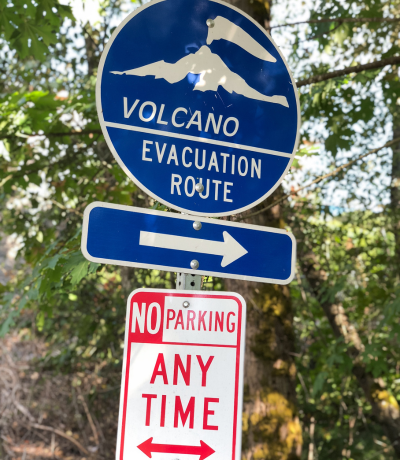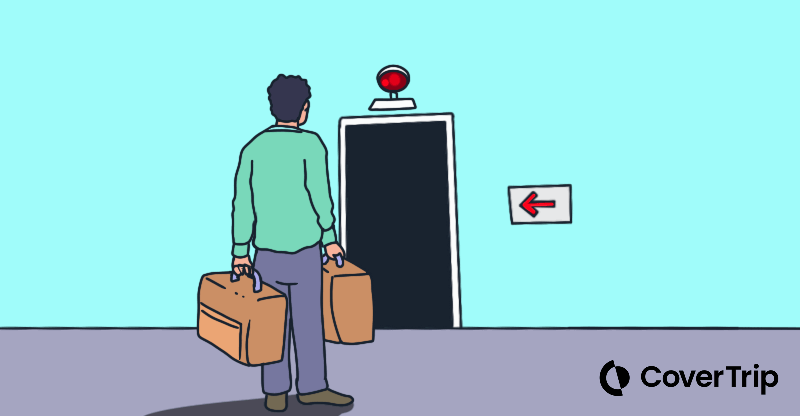What to do when your vacation becomes an evacuation
15 September 2023
The world is seeing more weather- and climate-related events than ever before and the power and speed at which these things move ![]() seems to be increasing.
seems to be increasing.
Unfortunately, extreme weather conditions continue to dominate the travel news, including:
- Record
 rainfall and flooding in Greece, Turkey, and Bulgaria
rainfall and flooding in Greece, Turkey, and Bulgaria - Hurricane Lee
 marches toward the Caribbean
marches toward the Caribbean - Severe
 winter weather conditions in Australia’s southeast
winter weather conditions in Australia’s southeast - Powerful
 earthquake in Morocco
earthquake in Morocco
Travelers should not (and cannot!) assume their trip will be safe from natural disasters, so it’s good to have a disaster plan.
Here’s how to design a natural disaster plan before your next trip.

Research the risks
Specific preparations depend on where you’re traveling and what threats you could be facing.
Before you leave home, look online to determine the most common natural disasters for the area and time of year you’ll be traveling. California’s earthquake, flood, and wildfire risk is well known, for example.
Once you know what the risks are, you can have a plan in mind.
Type search requests like this:
- “common natural disasters in city, country“
- “severe weather in city, country in month“
In general, it’s important to be aware that any situation could get worse quickly so flexibility is key.
Learn the local emergency alerts
A tourist visiting Hawaii, for example, should know the alert sirens are used to give tsunami warnings. Australia’s warning siren is played over radio, television, and public address systems to warn of brushfires, floods, cyclones, etc.
Go online and learn the local emergency sirens before you go, or talk to the hotel workers when you get there.
Make sure you are set up to receive key messages from authorities on your phone—this is where emergency alerts will typically appear. You don’t need an app to receive these, but you need to have cell service and your location enabled.
Buy travel insurance for your trip
A good travel insurance plan can help you recover your lost trip expenses and help you manage a dangerous situation. You can also customize a travel insurance plan to cover yourself and your family to ensure you’ll have support in a natural disaster or evacuation.
See how ![]() travel insurance covers natural disasters.
travel insurance covers natural disasters.
Stay in communication
As much as you may want to unplug and escape entirely on vacation, you have to pay a little attention when you’re traveling so you don’t miss something critically dangerous.
You’re also a visitor, and unless you’ve been there before, you’re likely less familiar with the roads and environment in general. Whereas a local would know which road to take out of town in case of a wildfire, you may not.
- Keep your phone charged and have a power bank.
- Install helpful safety apps on your phone – see our
 list of essential apps.
list of essential apps. - Leave a copy of your itinerary and your travel insurance plan with a friend or relative at home. They can help those close to you stay informed and not panic.
- Make sure everyone in your group has every other person’s phone number. Even better, set up a group chat in case people are separated in an emergency.
- Maintain quick access to important documents like your passports and licenses if you must evacuate.
- Know how and who to call for help (local police, embassy, etc.).
- Register with the US Department of State’s
 STEP program and register your itinerary.
STEP program and register your itinerary.
If an emergency occurs, you’ll receive info that can help you make decisions about your travel plans.
Note: If you purchased travel insurance, your plan has a 24/7 support number (keep that handy).
Be prepared to leave it all behind
If there’s an emergency and you must evacuate quickly, you may have to leave everything behind. Be OK with that.
Don’t cling to your luggage if it will slow down your evacuation. Take only what’s necessary:
- Communication devices (phones, tablets, and chargers)
- Medications
- A change of clothes
- Important documents (passports, licenses, etc.)
- Local cash
- Drinking water
Cash is good, especially if the weather event destroys the power grid. Thousands of people on Maui Island lost cellphone services during the recent wildfires.
Related topics
Damian Tysdal is the founder of CoverTrip, and is a licensed agent for travel insurance (MA 1883287). He believes travel insurance should be easier to understand, and started the first travel insurance blog in 2006.
